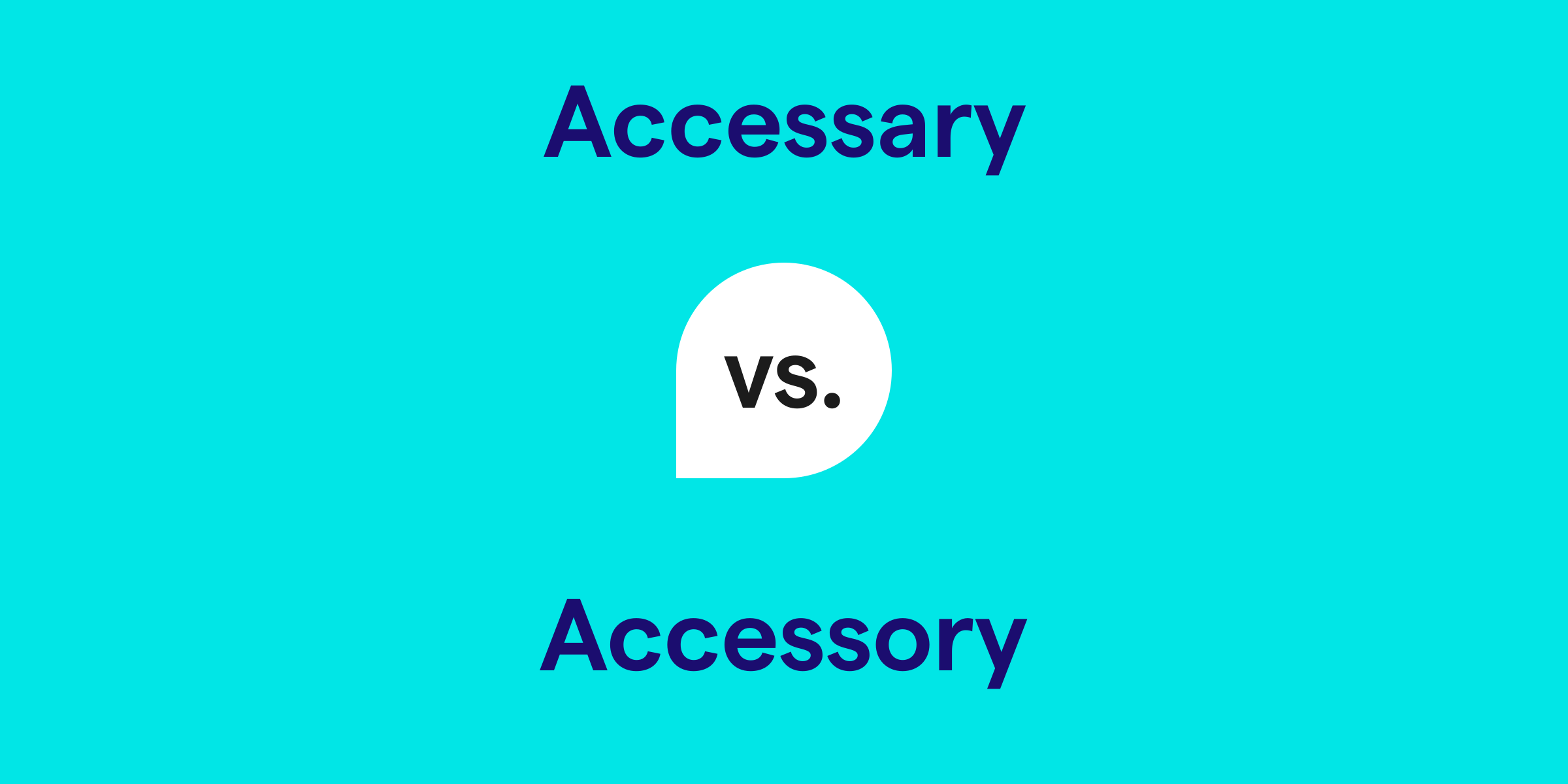Accessory vs. Accessary: What's the Difference?
The terms accessory and accessary often lead to confusion due to their similar spelling and pronunciation. An accessory is typically an additional item that enhances another item, often in fashion or technology. On the other hand, accessary is an alternative spelling of accessory used in legal contexts to describe someone who aids or contributes to a criminal act but is not present at its occurrence.

How do you use the word accessory in a sentence?
The word accessory is used to describe an object or item that accompanies another, typically as a supplementary addition that enhances or completes the main item. It is commonly used in reference to fashion items such as jewelry or belts, technological gadgets like phone cases or headphones, or car features such as floor mats or decals.
Examples of accessory in a sentence
- Her earrings were the perfect accessory to her stunning dress.
- A durable phone case is an essential accessory for anyone prone to dropping their device.
- Aftermarket spoilers are a popular accessory for car enthusiasts looking to customize their vehicles.
How do you use the word accessary in a sentence?
The term accessary is less common but is used in the legal field to describe a person who assists in the commission of a crime, yet does not actually participate in the crime itself. An accessary can be before the fact, helping to plan or encourage the crime, or after the fact, helping to hide evidence or the suspect.
Examples of accessary in a sentence
- The defendant was accused of being an accessary to the robbery by providing the getaway car.
- Although she did not participate in the crime, harboring the fugitive made her an accessary after the fact.
- The court held that the individual was an accessary before the fact due to his role in planning the heist.
Accessory and Accessary definition, parts of speech, and pronunciation
Accessory definition:
An accessory is a supplementary item that improves or is intended to complement another item. It can be a piece of clothing, a gadget add-on, or an accent piece.
Accessory parts of speech:
Accessory pronunciation:
Accessory is pronounced as /əkˈsesəri/.
Accessary definition:
An accessary is someone who aids or encourages the commission of a crime but is not present during its perpetration.
Accessary parts of speech:
Accessary pronunciation:
Accessary is pronounced as /əkˈsesəri/, which is the same pronunciation as accessory.
An accessory is a supplementary item that improves or is intended to complement another item. It can be a piece of clothing, a gadget add-on, or an accent piece.
Accessory parts of speech:
- As a noun, an accessory refers to a non-essential but useful addition to the main item or outfit: 'The handbag she chose was more than an accessory; it was a statement piece.'
- As an adjective, it describes items that are secondary or additional: 'The accessory tools came with the power drill as part of a special promotion.'
Accessory pronunciation:
Accessory is pronounced as /əkˈsesəri/.
Accessary definition:
An accessary is someone who aids or encourages the commission of a crime but is not present during its perpetration.
Accessary parts of speech:
- As a noun, accessary refers to the legal term for an accomplice: 'The authorities investigated whether anyone was acting as an accessary in the crime.'
- The term is primarily used in its noun form and does not commonly occur as other parts of speech in legal parlance.
Accessary pronunciation:
Accessary is pronounced as /əkˈsesəri/, which is the same pronunciation as accessory.
Accessory vs. Accessary in a nutshell
While accessory is a broad term for supplementary items enhancing a primary object, accessary is a specific legal term referring to an individual involved in a crime indirectly. Both terms are pronounced the same way, but their usage contexts are distinct. Accessory can be used as a noun or adjective across various settings, whereas accessary almost exclusively pertains to legal discussion as a noun. Remembering these differences helps to avoid mix-ups in writing and conversation.
Get AI Writing Assistance Wherever You Type
Make sure your vocabulary is on point and every punctuation mark is in the right place, no matter where you’re working. Grammarly works across more than 500,000 websites and apps so you can improve your writing without copying, pasting, or breaking focused.

More Commonly Confused Words
Interest piqued? Pore (not pour) over other commonly confused words to help your writing reach peak (not peek) performance.